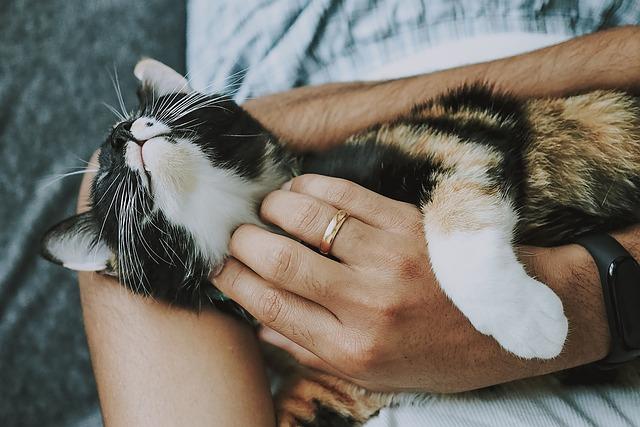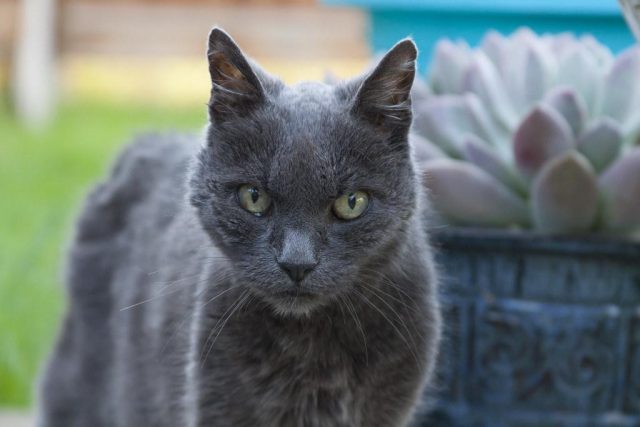As our beloved pets gracefully enter their golden years, they bring with them a lifetime of cherished memories and unwavering companionship. Just like us, senior pets may face age-related challenges, but with a little extra care and attention, their twilight years can be filled with joy and vitality. In this guide, we’ll explore the top tips for managing age-related conditions in our senior furry friends, ensuring they continue to wag their tails and purr with contentment. Join us on this heartwarming journey to nurture and celebrate the enduring bond we share with our aging companions.
Recognizing the Signs of Aging Gracefully
As our beloved pets enter their golden years, it’s important to understand and embrace the changes that naturally occur. Observing subtle shifts in their behavior or physical condition can help us address their needs effectively. Gray muzzles and a slower gait are common indicators, but there are other, less obvious signs to watch for:
- Changes in Appetite: A sudden disinterest in food or a newfound preference for softer meals can signal dental issues or digestive changes.
- Altered Sleep Patterns: More frequent naps or restlessness at night might suggest arthritis discomfort or cognitive changes.
- Behavioral Shifts: Increased clinginess or irritability may be a response to discomfort or anxiety as they adjust to their aging bodies.
- Vision and Hearing Loss: Bumping into furniture or not responding to calls could indicate sensory decline.
By staying attentive to these signs, we can ensure our senior companions continue to thrive with the love and care they deserve. Regular check-ups with a veterinarian can help tailor a care plan that supports their changing needs.

Nourishing Diets for Golden Years
As our beloved pets enter their golden years, providing them with a nourishing diet becomes crucial to managing age-related conditions effectively. Senior pets often benefit from diets rich in high-quality proteins and essential fatty acids, which support muscle maintenance and joint health. Incorporating foods with antioxidants can also aid in combating oxidative stress, a common issue in aging animals.
- Lean Proteins: Opt for chicken, turkey, or fish to support muscle health.
- Omega-3 Fatty Acids: Found in fish oils, these can help reduce inflammation and support cognitive function.
- Fiber-Rich Foods: Ingredients like pumpkin and sweet potatoes aid digestion and weight management.
- Antioxidant-Rich Fruits and Vegetables: Blueberries, carrots, and spinach can help bolster the immune system.
By focusing on these nutritional elements, you can help ensure your senior pets enjoy their later years with vitality and comfort.

Gentle Exercise Routines for Senior Companions
As our furry friends age, it’s important to keep them active with routines that cater to their unique needs. Gentle exercises can help maintain mobility and improve overall well-being. Here are some ideas to keep senior pets engaged:
- Short Walks: Opt for leisurely strolls in familiar environments. This not only benefits their physical health but also stimulates their senses.
- Interactive Play: Use soft toys for light play sessions that encourage movement without overexertion.
- Swimming: If available, swimming is an excellent low-impact exercise that supports joint health and muscle tone.
Always monitor your pet’s response to ensure they’re comfortable and happy. Adjust the intensity and duration as needed, and consult with a vet for personalized advice.

Creating a Cozy and Safe Environment
Ensuring your senior pet feels at home means paying attention to their changing needs. Comfort is key, so consider adding plush bedding or orthopedic mats to their favorite resting spots. This not only provides support for aching joints but also gives them a dedicated space to relax. Temperature control is crucial; older pets are more sensitive to extreme temperatures, so maintain a stable climate within your home.
- Soft Lighting: Use gentle lighting to help pets with diminishing eyesight.
- Non-slip Flooring: Rugs or carpets can prevent slips and falls, making it easier for them to navigate.
- Accessible Spaces: Ensure food, water, and litter areas are easily reachable without the need for stairs or jumps.
Creating an environment that caters to their physical limitations while providing emotional comfort is essential. Surround them with familiar scents and sounds, and consider playing soothing music to ease anxiety. With these thoughtful adjustments, your home can become a sanctuary for your aging companion.


































